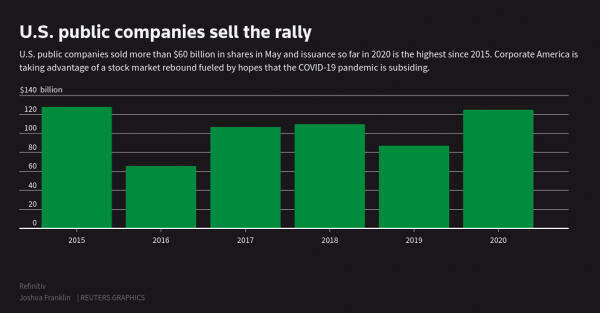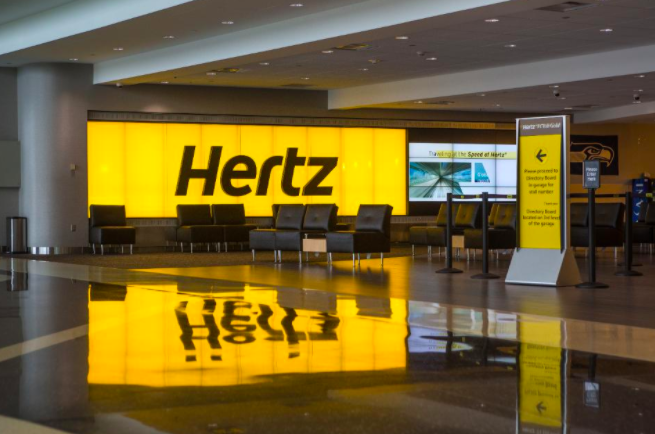Companies are increasingly reducing or cancelling dividend payments. A decrease in the share buybacks by IT companies is probably next in line. The share buyback is an essential driver of their price growth. However, the probable two-digit rate of GDP drop in the second quarter is likely to force companies to save capital rather than return it to investors.
The central banks became almost the largest buyers of assets in the markets at the moment. For example, the Bank of Japan bought up about 80% of local ETFs. The Fed bought $2.8 trillion worth of securities in less than three months. But there is a limit to these purchases, as we can hardly expect central banks to be the only holders of private assets.
Last week the Fed’s balance sheet rose by $60 bln against $103 bln and $213 bln in the previous two weeks. The launch of the new program in early May started with big purchases, but now it is losing momentum. Together with this, the market is also likely to lose strength, causing slippage of the stock indices.
Users of Robinhood, a stock trading app, have more than doubled their positions in companies in the Russell 3000 index of the biggest US-listed groups since the rally began, according to Morgan Stanley calculations. The 10 most popular stocks held by Robinhood users include American Airlines and Carnival, the cruise operator – two coronavirus-hit companies whose fortunes may not turn for some time.
Online trading and a “buy-the-dip” mentality have helped attract a new breed of retail investor, said Ms Roland of John Hancock.
“My 10-year-old son asked me if he can open an ETrade account so he could buy Tesla stock,” she said. He had learned about fractional shares, which give investors the ability to buy a slice of a stock and would allow him to purchase a portion of the carmaker’s shares that currently trade at $820. “He only has $150 – it was his first communion money.”
Dotcom boom
Steven DeSanctis, an equity analyst for Jefferies, said daily trading in small biotech stocks has climbed in recent weeks, often exceeding companies’ outstanding share count. He puts this down to active day-trading, reminiscent of retail investors’ frothy buying of internet stocks during the dotcom boom.
“There’s a little of that euphoria in the market, which makes me nervous. You know how it ends – badly,” Mr DeSanctis said.













